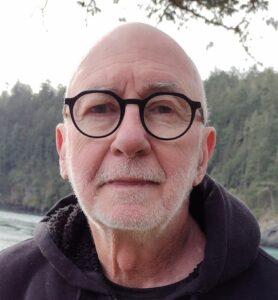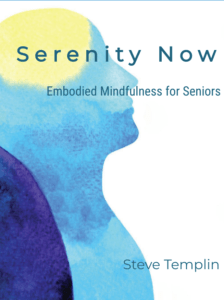When you’re anxious you tend to over breathe versus breathing silently and slowly through your nose. When you breathe too much you tend to exhale too much carbon dioxide and this actually lowers the amount of oxygen that is available to your tissues and especially to your brain.
Having levels of carbon dioxide that are too low also contributes to nasal congestion (sinusitis), constricted bronchioles (asthma), constricted blood vessels (hypertension) and reduced oxygen levels to your brain (anxiety, depression, and panic attacks).
Normalizing carbon dioxide levels through simple breath training can benefit all of the issues just mentioned dramatically.
Breathing is Always Accessible, Simple and FREE!
While there are many approaches to treating anxiety, including acupuncture, diet, energy medicine, or a referral for counseling, the first technique that I share with most patients for self-care is how to control their breathing.
This process will reduce anxiety and increase feelings of comfort and safety quickly while a more comprehensive approach can be planned.
Here’s a simple process from the Buteyko breathing method (not to mention the Yoga tradition) that begins to reduce anxiety by balancing carbon dioxide levels – often within just a minute or two.
- Breathe in gently and silently through your nose without allowing much movement in your belly or chest.
- Breathe out through your nose in the same silent and gentle fashion.
- Hold your breath after the exhalation for about 2-5 seconds, no more.
- Continue to breathe normally in and out (gently and silently through your nose) for 10-15 seconds … then hold 2-5 seconds after the exale.
- Repeat number 4 until you begin to feel more comfortable.
This simple breathing exercise also increases heart rate variability (which is a reflection of autonomic nervous system balance and an indication of your overall ability to heal). It also helps us to shift out of the amygdala in the limbic brain to a much more resourceful brain center, the prefrontal cortex.
You may find that doing this gentle breathing exercise many times a day (1-2 minutes at a time) contributes to more peace, clarity and a greater sense of well-being. As with most new skills, regular practice produces the best and longest acting benefits.
 Steven Templin, D.O.M., Dipl. Ac. specializes in Acupuncture and Limbic Brain Reprogramming to address the roots of chronic pain and illness. He offers a comprehensive mind-body program for addressing the underlying inflammation, toxicities, and stress-induced causes of most pain and illness.
Steven Templin, D.O.M., Dipl. Ac. specializes in Acupuncture and Limbic Brain Reprogramming to address the roots of chronic pain and illness. He offers a comprehensive mind-body program for addressing the underlying inflammation, toxicities, and stress-induced causes of most pain and illness.
He places special emphasis on resolving the stress response and repairing adrenal gland and digestive system function to address the root causes of many common and often difficult to treat illnesses.
He translates emerging research in the fields of Epigenetics, Energy Psychology, and Functional Nutrition into effective practices that you can perform at home.
You can work with Dr. Templin in his Lakeland office, or online. You can visit his website at www.stevetemplin.com and contact him via email at drtemplin@gmail.com.
You can schedule an office visit with Dr. Templin by calling 863-838-2779.

 Steve is a retired Doctor of Oriental Medicine, Acupuncture Physician, and HeartMath Trauma-Sensitive Certified Practitioner with over 35 years of clinical experience in the fields of Energy Medicine, Energy Psychology, and Biofeedback.
Steve is a retired Doctor of Oriental Medicine, Acupuncture Physician, and HeartMath Trauma-Sensitive Certified Practitioner with over 35 years of clinical experience in the fields of Energy Medicine, Energy Psychology, and Biofeedback. 